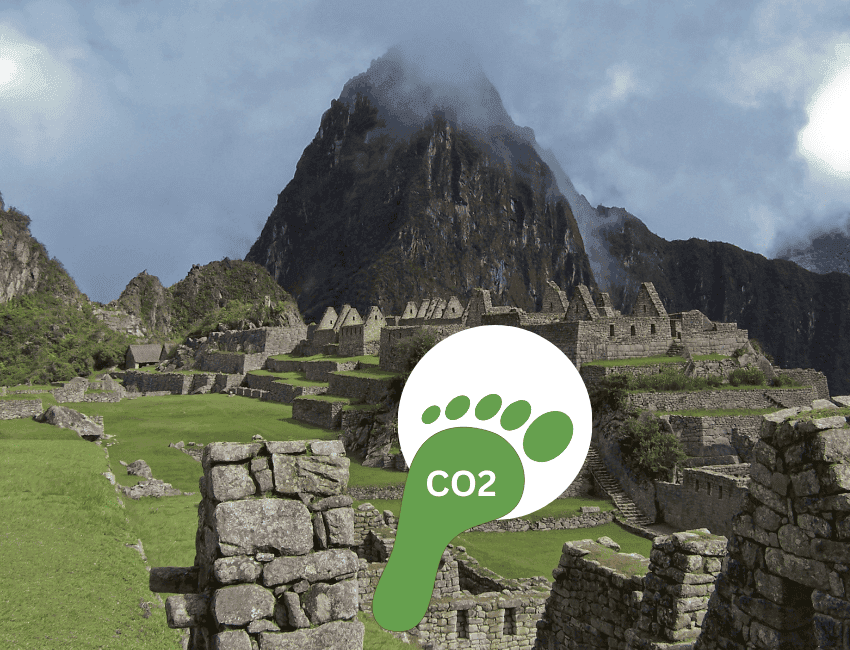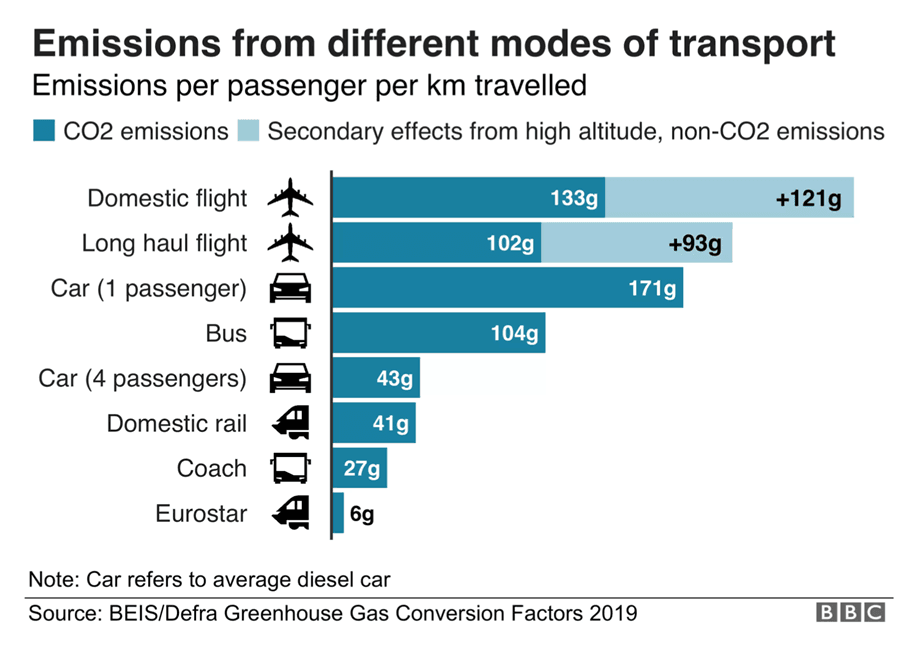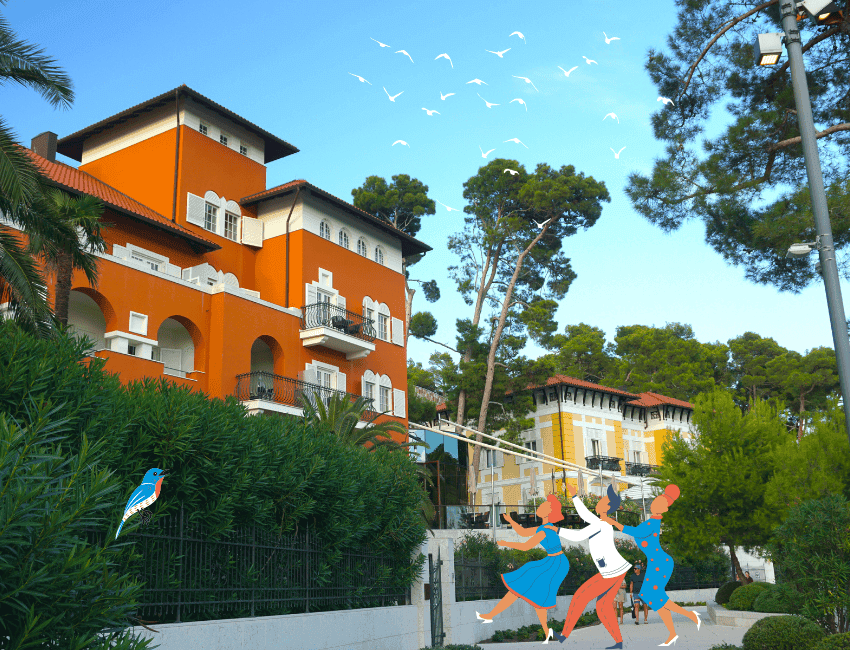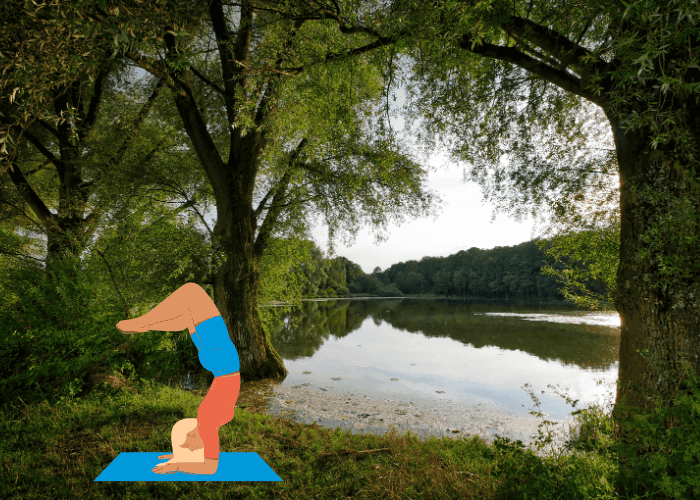Published on 05.01.2024 by Teresa Kuen
There seems to be a crisis everywhere, so it's understandable to long for relaxation and distraction in turbulent times. A vacation with like-minded people would be exactly what we need right now!
However, our climate awareness makes it difficult for us to travel with a clear conscience, because there is usually more CO2 in the holiday air. 8 to 10 percent of global greenhouse gas emissions are now caused by global tourism.

Help! I need a vacation, but I'm climate conscious
The ecological footprint of a trip
You've probably heard of it before, but what exactly is it? Simply put, the ecological footprint is the traces that we humans leave on the earth. It refers to the performance of the earth system, i.e. the amount of productive land and water areas that are necessary to provide resources and absorb their waste.
So that our journey is not plagued by climate shame and promises the recovery we hope for, the consumption of resources must be kept as low as possible.

8-10% of global greenhouse gas emissions are caused by tourism
What does a journey consist of?
Arrival and departure
Accommodation and meals
Activities and excursions on site
These respective components have an impact on the overall environmental impact of the trip.
What is important in a climate-friendly trip?
1. An environmentally friendly journey
Arrival and departure have a major impact on the CO2 balance. Different means of transport have different CO2 emissions. We can see how much emissions the various means of transport emit on average in the graphic below.

The mode of transport makes a big difference
The most environmentally friendly way to transport us is by train, followed by coaches and cars. CO2 emissions per capita are always reduced the more people a vehicle transports. Sometimes there is more, but there is less. Air travel increases the carbon footprint the most. Almost 50% of carbon emissions from global tourism are caused by aviation.

Flying accounts for almost 50% of CO2 emissions in tourism
Tips for a clear (aviator) conscience
Compensate for CO2 by co-financing climate protection projects
Air travel only to places that are otherwise difficult to reach
Avoid short-haul flights
Longer stays to make it pay off
2. A climate-conscious accommodation choice
In Austria, more than 20% of the CO2 emissions caused by tourism come from accommodation providers. The CO2 emissions of an overnight stay depend on the type of accommodation or the quality, i.e. the number of stars. The German hotel and restaurant association DEHOGA assumes the following CO2 emissions per overnight stay and guest:

Fewer stars does not mean fewer emissions
Now you would think that the more stars a hotel has, the more CO2 emissions have to be produced. Appearances are deceptive, climate-conscious savers beware, restaurants with 0 to 2 stars have a worse carbon footprint than hotels with 3 to 4 stars.
3. Climate-friendly activities
Of course, the leisure activities of the trip also have an impact on the CO2 balance. If we take the bus to the national park, our environment is much happier than if we rent a jet ski in the harbor.
Travel CO2 balances in comparison
Here are two examples from a WWF study to illustrate: A two-week all-inclusive vacation to Cancún, Mexico, in a five-star resort emits 7,194 kg of CO2 per person. Despite the luxurious hotel, the plane ride emits the most. For comparison, a five-day holiday in South Tyrol, also in a five-star resort, only emits 216 kg of CO2 if you travel by bus. The largest share, 80 kg, comes from the accommodation. (Day) trips and meals are included in these balance sheets.

A long plane trip emits more than luxurious hotels
What does sustainable travel have to do with Reisigo?
With Reisigo you are already part of a group, which means your carbon footprint is kept low even if you travel by car. Our partner hotels save resources and are efficient. We support a climate protection project run by the University of Natural Resources and Life Sciences in the Global South to address the extent of the emissions generated by the hotels in order to compensate for the environmental impact.
On our active leisure group trips, the need for climate-friendly activities is well covered, for example yoga, cycling or hiking.
At Reisigo, we are convinced of the positive effects that group travel can have on the human psyche and physical well-being. We also believe that soft tourism will have a positive impact on regions and local people by creating appreciation for natural habitats through economic recovery.

Feel nature sustainably